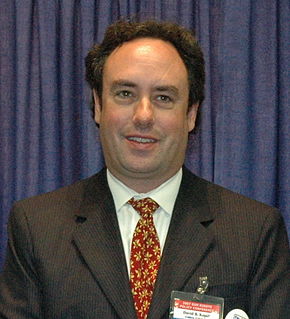A Quote by William Petty
The trade of banks is the buying and selling of interest and exchange.
Related Quotes
There's only one thing that all of the central banks control and that is the base, their own liability, and they can control that in various ways. They can control it directly by open market operations, buying and selling government securities or other assets, for example, buying and selling gold, or they can control it indirectly by altering the rate at which banks lend to one another.
People tend to think that paying a debt is like going out and buying a car, buying more food or buying more clothes. But it really isn't. When you pay a debt to the bank, the banks use this money to lend out to somebody else or to yourself. The interest charges to carry this debt go up and up as debt grows.
Yes, when they're buying there are more buyers in the market and that's supportive of the price. The more buyers you have, the firmer the price is going to be. When central banks were selling it was a headwind the market had to overcome. Now it's a tailwind that central banks are joining the buyers.
People nowadays interchange gifts and favors out of friendship, but buying and selling is considered absolutely inconsistent with the mutual benevolence which should prevail between citizens and the sense of community of interest which supports our social system. According to our ideas, buying and selling is essentially anti-social in all its tendencies. It is an education in self-seeking at the expense of others, and no society whose citizens are trained in such a school can possibly rise above a very low grade of civilization
With a profession such as investing, people see the 'doing' as the buying and selling. It is difficult to come home from work, and answer your spouse's question, 'what did you do today?' with 'well, I read a lot, and I talked a little.' If you're not buying or selling, you may feel you aren't doing anything.
Network marketing is based purely on relationship selling, which is the state of the art in selling today. Small and large companies throughout the country and the world are realizing that individuals selling to their friends and associates is the future of sales, because the critical element in buying is trust.




































